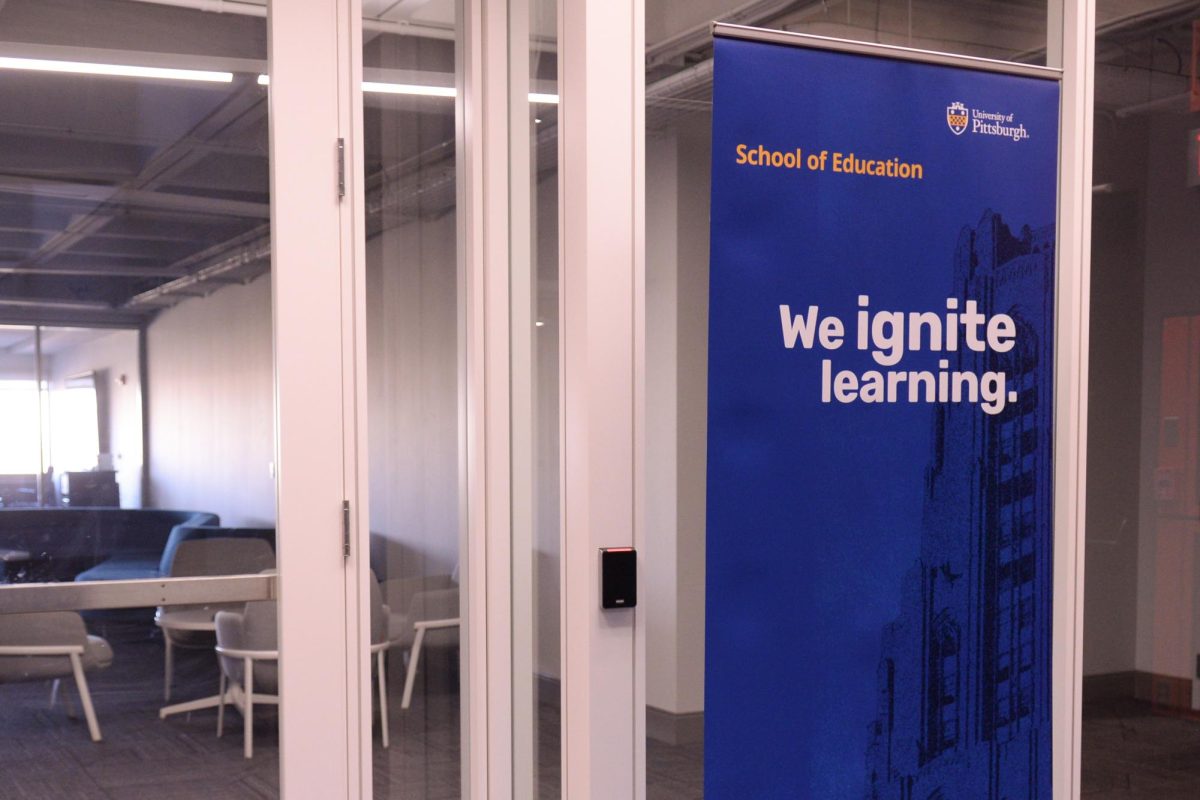Under the Trump administration, the Department of Education and diversity, equity and inclusion initiatives are under threat with a wave of executive orders and new policies. In the wake of these shifts, students and educators are beginning to navigate new realities they might face.
An anonymous staff member in Pitt’s School of Education said the potential changes in the national education department will have “profound consequences” on the Pennsylvania Department of Education.
“The [ED] plays a crucial role in providing federal funding, policy guidance and oversight to states, ensuring that education programs — especially those serving the most vulnerable students — remain effective and well-supported,” they said.
According to the staff member, education in Pennsylvania will face “several major challenges” if the ED is dissolved. This could include substantial funding cuts and lower-quality training for educators.
“The [ED] provides a significant portion of PDE’s budget through grants. Without this, Pennsylvania would have to either replace billions of dollars in lost funding or cut essential programs,” they said. “University-school partnerships that provide hands-on training and student teaching opportunities would weaken, reducing the quality of teacher preparation.”
Lauren Jewell, a junior early childhood education major, thinks there will be huge changes within Pittsburgh Public Schools if the ED is dissolved. The uncertainty has caused many education students to reconsider their professional future, according to Jewell.
“At a local level, it’s going to really change. I already know people pulling out of our program and starting to look in different subject areas,” Jewell said. “Personally, going into the classroom right out of college doesn’t sound like a good opportunity anymore.”
Since the beginning of the Trump administration, Jewell said she has seen a worrying shift in public attitudes against education and DEI initiatives.
“The reality of going to the classroom every day is just so scary and uncertain,” Jewell said. “I just don’t think I’d want to be a part of the education system in the state it’s going to be in after this presidential term.”
Oliver Mazie, a sophomore education major, discussed the ED’s role in schools across the country and questioned why the Trump administration wants to scale back education initiatives, especially those regarding DEI, which is a central part of the curriculum within the School of Education. Amid the new policies opposing these initiatives, the future of diversity in higher-level education is unclear.
“It sets up a lot of guidelines for how the federal government gets involved with schools, and especially funding for public schools,” Mazie said. “I don’t really know why they want to dissolve the department. I guess they think it’s useless and not doing anything. I would say 90% of my course load right now is talking about DEI in schools. And maybe this will no longer be in the curriculum in a year.”
Ensuring that educators are representative of the students they teach has been a continual struggle and main focus point of DEI.
“Historically, schools have been very white places,” Mazie said. “A lot of [teaching is trying] to recognize your racial biases and trying to avoid them.”
Jewell discussed how DEI advocates for students’ needs in the classroom and expressed that significant losses would occur if it were removed from schools.
“In the educational field, [DEI was] established to guarantee that the people teaching our children are representative of our children,” Jewell said. “Now I don’t think it’s going to be possible to guarantee that schools are going to represent everyone anymore, if they ever really did.”
Aidynn Henry, a sophomore psychology major who is planning to get her master’s in education, expressed how DEI is “nearly universal” and is a fundamental component of education at every level. According to Henry, DEI is “literally everywhere.”
“Even if you don’t think it applies to you, I’m sure you’ve benefited from it in the past,” Henry said. “It allows people to get through school and earn an education, which is endlessly important.”
Henry thinks there is an “aspect of job security” threatened by the potential removal of the ED.
“There would be a huge loss in funding, which would affect teachers and students alike not only in terms of salary but also simple resources,” Henry said. “It would immensely affect my career.”
The recent NIH funding freeze sparked concern among educators, who fear that all levels of education might be the next to experience funding cuts.
“For college especially, people are worried about potentially losing funding,” Mazie said. “My mom does outreach for her lab into Pittsburgh Public Schools. [There’s been] a lot of talk about cutting DEI and all of the grants they have as well.”
Despite the growing number of challenges under the Trump administration, Jewell feels it is more important now than ever to continue pursuing education as a career.
“Every time something else happens, every time another book is banned, it just feels a little bit like a loss,” Jewell said. “I think it’s important that we all stick with it and [work] in education in some capacity.”
Pitt recently began making changes to its web pages, including removing references to DEI and taking down links that discuss “anti-racism.” A site that said the University was “weaving our commitment to fostering justice, equity, diversity and inclusion” into a department and included statistics about minority, female and LGBTQ+ enrollment is also unavailable.
“I don’t think it’s a good thing at all, but I think it is smart to do that now before they potentially get in trouble [with the Trump administration], which it seems like they might,” Mazie said.
Pitt Media Relations did not respond to multiple requests for comment.


